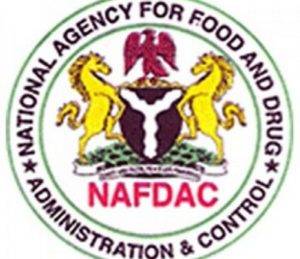The National Agency for Food and Drug Administration and Control (NAFDAC) has announced the removal of the prohibition on the sale of alcoholic beverages in sachets and plastic bottles. This decision follows extensive discussions with the House of Representatives.
Philip Agbese, the Deputy Spokesperson for the House, made the disclosure in Abuja on Friday. He emphasized that the sales of these products would continue until the Nigerian economy recovers from its current downturn. This move is seen as a temporary measure to alleviate economic pressures on businesses and consumers alike.
Legislative Discussions Lead to Policy Shift
The announcement to temporarily lift the ban came after a detailed discussion between the House Committee and NAFDAC officials. Agbese stated that during the meeting, a consensus was reached on the necessity of adapting policies to current economic realities.
“During the meeting, we all agreed that, at a certain point in history, it is essential to advance alongside our global counterparts. However, we also concurred with NAFDAC that there would be a temporary lifting of the ban until the economy recovers its strength,” Agbese said. This decision was influenced by a motion before the parliament to investigate the circumstances that led to the initial ban on sachet beverages. The House Committee on NAFDAC, chaired by Hon. Regina Akume, conducted a thorough investigation and provided a comprehensive report back to the parliament.
Stakeholder Engagement and Economic Considerations
The investigation and subsequent decision were not made in isolation. The House Committee engaged with a wide array of stakeholders, including NAFDAC, the organized private sector, civil society organizations, and other interested parties. Agbese highlighted that the feedback from these engagements was crucial in shaping the committee’s recommendations.
“The recommendations presented to parliament included the view that the ban was untimely given the current economic realities. The five-year moratorium granted by NAFDAC, the impact of COVID-19, and other ongoing economic challenges have made it difficult for industry operators to comply with the terms,” Agbese explained. Following these considerations, the parliament adopted the House Committee Report in its entirety. The final agreement to lift the ban was reached after discussions with NAFDAC’s leadership, headed by Prof. Mojisola Adeyeye, reflecting a united government approach in response to the nation’s economic challenges.
Reasons For NAFDAC’s Initial Ban on Alcohol in Sachets and Plastic Bottles
The National Agency for Food and Drug Administration and Control (NAFDAC) has reversed its previous decision to ban the sale of alcohol in sachets and plastic bottles. This move marks a significant policy shift, initially introduced to address health concerns related to the consumption of these products. The original ban, effective from January 31, 2024, aimed to mitigate widespread abuse and health risks associated with the cheap and easily accessible nature of sachet alcohol. NAFDAC’s decision to impose the ban was part of a broader regulatory effort to curb excessive alcohol consumption and its related health problems.
Despite the health-focused intentions, the ban faced significant opposition from various sectors. Industry operators highlighted the potential economic fallout, arguing that the prohibition would lead to substantial losses and job cuts within the beverage sector. Civil society groups and consumer associations also voiced their concerns, emphasizing the economic hardships that would affect small-scale retailers and consumers reliant on these affordable options. The broad pushback from multiple quarters has ultimately influenced NAFDAC to reassess its stance.
Opposition and Economic Concerns
The opposition to NAFDAC’s ban was robust and multifaceted. The Association of Sachet and Packaged Water Producers of Nigeria (ASPWAP) was among the vocal opponents, contending that the ban would disproportionately impact small businesses and elevate the cost of alcoholic beverages. They argued for a phased approach to regulation, rather than an outright ban, to balance health concerns with economic stability. This perspective was echoed by other industry stakeholders who feared that the abrupt policy shift would lead to significant economic dislocation.
The economic implications of the ban were a central concern, exacerbated by ongoing fiscal pressures in the country. The beverage sector warned of potential job losses and economic downturns if the ban remained in place. Small-scale retailers, who heavily depended on the sales of these affordable alcohol products, also feared for their livelihoods. The compounded economic challenges have made it clear that a more balanced approach is necessary, prompting NAFDAC to reconsider its policy. This reassessment underscores the complex interplay between public health objectives and economic realities, necessitating a nuanced regulatory approach.
Table of Contents
Discover more from OGM News NG
Subscribe to get the latest posts sent to your email.














